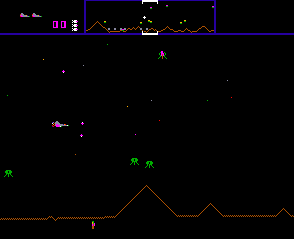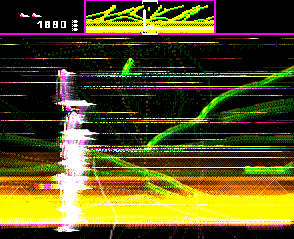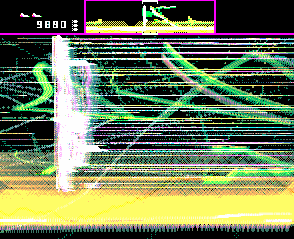Defender: Unnecessarily Hard
Game informationDeveloper: Williams Publisher: Williams Released: 1980 Screenshots
ReviewAccording to Bernard Suits, one of the defining characteristics of games is that the player has to reach the game goal using the less efficient means available: in a foot race, it would be faster to drive a car; in a high jump, it would be easier to use a ladder. Games are unnecessary work. Right from the controls, Defender (1980) shows its gameness. The game is unnecessarily hard in a way that exceeds expectations. Conventional wisdom says that the basic controls of a game should be intuitive and satisfying, but Defender has a stick for moving up and down, and an awkward single button for reversing direction. The designers could have given players more efficient means of moving by way of a four-directional joystick. But they were designing Defender, an unnecessarily hard game. This is also the joy of Defender: the pure and personal feeling of overcoming challenges, of improving. Stay alive by evading and shooting enemies. The deeper challenge is to protect the ten humans on the ground. If an alien carries a human to the top of the screen, the human is subsumed, and the alien transformed into an aggressive mutant that seeks out the player. Once all humans are lost, the planet explodes and the player must play in hyperspace where all aliens are mutants. This is the depth of the game: A core activity of staying alive and a second activity to take care of. Tend to the secondary activity of protecting the humans, or the core activity of staying alive becomes chaotic and extra hard, this time a necessary consequence of the player's neglect. Defender is unnecessarily hard, and this makes it a game for the few players who enjoy extreme challenges. Defender is an exaggerated version of the early 1980s arcade game in all its virtues: a large number of possible ways to fail, extremely unforgiving and no rewards beyond a high score and a few smart bombs. The purest arcade game.
ReferencesSuits, Bernard. The Grasshopper: Games, Life and Utopia. Toronto: University of Toronto Press, 1978. |


